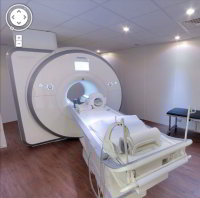Expert Orthopaedic Diagnosis Helps to Preserve Your Knee Joints
 Knee specialist approach to knee investigation ©Fotolia.com
Knee specialist approach to knee investigation ©Fotolia.com
The most suitable treatment for you will depend not only on the stability of your knee, but also on your age and your general medical condition. What does a knee specialist require to diagnose your knee condition?
For us to advise on the most suitable treatment for you, we need to be able to make an accurate diagnosis of your particular problem by conducting a thorough medical examination. To achieve this, we propose the following steps:
- You send us your X-rays and we respond with an initial remote evaluation of your condition. The accuracy of this diagnosis depends greatly on the quality of your X-rays. For example, a more accurate assessment can be made if the X-rays are taken whilst you are in a standing (weight-bearing) position.
- We make an appointment for you to come to the Gelenk Klink for an outpatient appointment. At this appointment we take more detailed X-rays, and make a clinical examination of the knee including observation of gait, balance and load-bearing capacity. MRI scans may also be performed on-site if necessary.
- You may be required to undergo an examination to assess the extent of damage to cartilage, ligaments, meniscus and bone. This minimally invasive examination will be carried out via arthroscopy. Through a small incision (less than 1cm in diameter) allowing fibre optic endoscopic instruments to be inserted, the doctor has a view of the inside of the knee via a TV monitor. Arthroscopy is performed under local anaesthetic.
- Following analysis of all the relevant information, a decision can be made as to whether a cartilage transplant or another joint-preserving procedure might be applicable. You will then be advised on a treatment plan. This is likely to recommend one or a combination of treatment options.



 Prof. Dr. med. Sven Ostermeier, Consultant for Orthopaedic Knee Surgery
Prof. Dr. med. Sven Ostermeier, Consultant for Orthopaedic Knee Surgery

